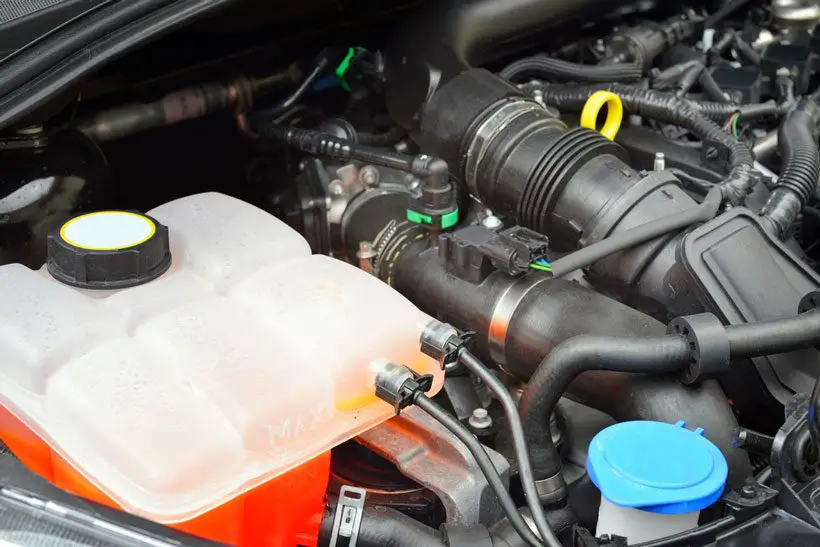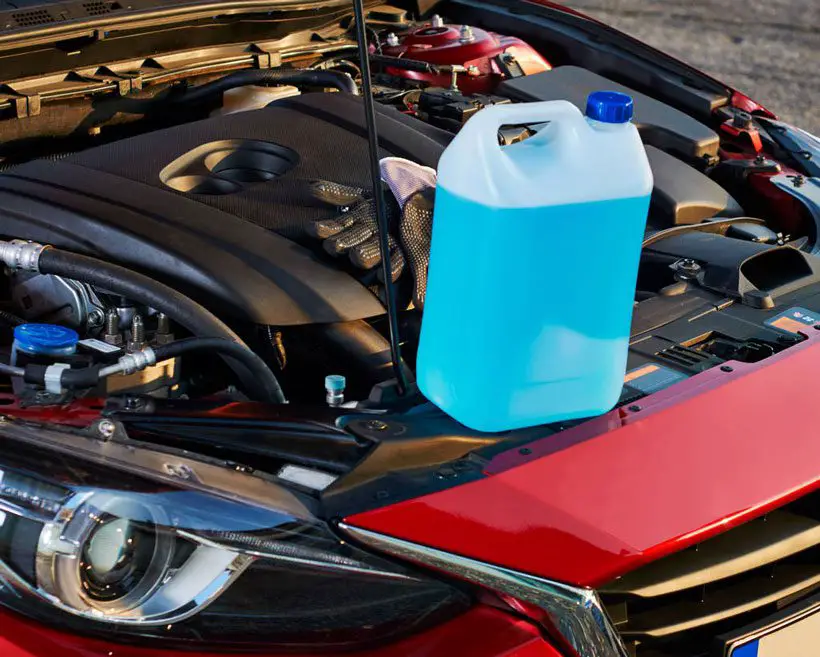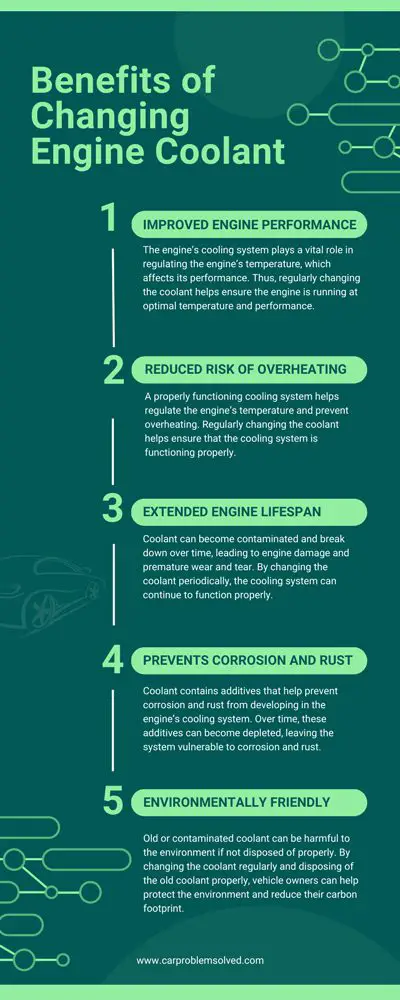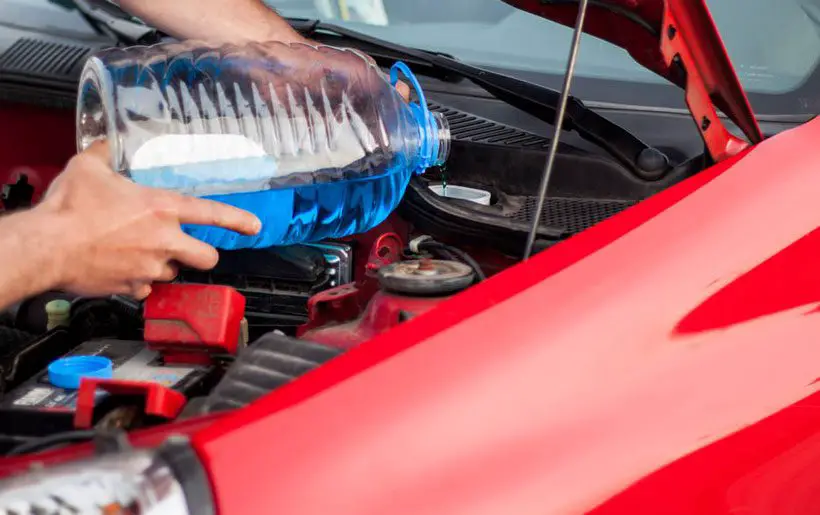Engine coolant plays a critical role in keeping a car’s engine running smoothly. It helps regulate the engine’s temperature, preventing it from overheating and causing damage.
But why should engine coolant be changed periodically? Because over time, coolant deteriorates and loses its effectiveness. And this can lead to significant engine damage. That’s why it’s important to change the coolant periodically.
In this article, we’ll discuss the importance and benefits of changing engine coolant, the consequences of not changing it, and the benefits of doing so. We’ll also guide when to change the engine coolant and how often it should be done.
The Role of Engine Coolant in the Cooling System

Okay, let’s start from the basics!
What is an engine coolant?
Engine coolant, sometimes called antifreeze, is a fluid whose primary function is to prevent engine overheating. However, it’s not alone to do so. The exhaust also plays a role in lowering engine temperature.

What does it do?
Well, coolant serves many useful functions to save your engine from costly repairs such as-
1. Regulates Engine Temperature
While your vehicle moves, the engine generates a lot of energy and heat. The cooling system and the exhaust ensure that the engine remains cool. Coolant circulates through the cooling system, absorbing and dissipating heat. Thus, the engine temperature is controlled.
2. Acts as an Antifreeze
When the coolant is mixed with Antifreeze, it prevents it and the engine components from freezing in cold weather. So the coolant can continue its functions, which is to prevent overheating the engine.
3. Prevents Rust and Corrosion
Coolant contains some additives to prevent rust in metal parts. They also save plastic parts from corrosion.
Maintaining Proper Coolant Levels
To maintain the proper level of engine coolant, it’s essential to check it regularly and top it up as needed. This is especially important during hot weather or if you’re driving long distances.
If the coolant level falls below the minimum level, top it up with a mixture of coolant and water in a 50:50 ratio. Otherwise, there are some consequences you need to count on.

The Consequences of Low Coolant Levels
When there is not enough coolant in the system, the engine can overheat, causing it to run poorly or even stall.
Overheating can also cause internal engine components to warp or crack, resulting in costly repairs. Additionally, low coolant levels can reduce fuel efficiency, as an overheating engine requires more fuel to run.
So, to maintain the proper level of coolant, you need to check the amount.
Checking Coolant Levels
Checking the engine coolant level is a simple process that can be done in a few easy steps.
- First, wait until the engine has cooled down completely
- Then locate the coolant reservoir, which is usually near the radiator. The reservoir will have minimum and maximum marks on it, indicating the proper level of coolant
- Check the level against these marks and top up the coolant if necessary
- If the coolant level is consistently low, it may indicate a leak in the system. It should be addressed promptly to avoid further damage to the engine
Coolant Deterioration
Over time, engine coolant can deteriorate and lose its effectiveness, leading to potential engine damage. There are several reasons why coolant can degrade, including exposure to oxygen and contaminants such as dirt and rust.

Additionally, coolant can become acidic as it ages, which can corrode engine components and cause leaks. As coolant deteriorates, its ability to regulate engine temperature decreases, increasing the risk of engine overheating and damage.
Why Does Coolant Loses Its Effectiveness Over Time?
Coolant contains additives that help to prevent rust, corrosion, and cavitation. Additives also help lubricate the water pump and maintain the pH of the coolant. However, these additives break down over time, causing the coolant to become less effective.

Exposure to heat, oxygen, and contaminants can accelerate this process, leading to premature coolant damage.
Consequences of Not Changing Coolant
If coolant is not changed when necessary, it can become contaminated and ineffective. The coolant may lose the power to resist freezing and boiling. Therefore, the engine temperature will rise.
Since engines have many parts that can develop rust over time, coolant may pick up rust while circulating. As a result, the coolant itself may be contaminated. Plus, it may deposit in other parts of the car, causing severe damage.
Regular coolant changes can help prevent these problems, ensuring optimal engine performance and longevity.
When to Change Engine Coolant and How Often?
To ensure optimal engine performance and prevent engine damage, it’s important to change the engine coolant periodically. There are several factors that determine the change frequency of the engine coolant.

Mileage Intervals
The most common way to determine when to change the coolant is by following the manufacturer’s recommended mileage intervals.
These intervals typically range from 30,000 to 100,000 miles, depending on the make and model of the vehicle. It’s important to follow these intervals to ensure that the coolant is changed before it becomes contaminated and ineffective.
Time-Based Intervals
In addition to mileage intervals, it’s also important to change coolant based on time intervals. Coolant can become contaminated and break down over time, even if the vehicle has not been driven many miles.
As a general rule, the coolant should be changed every two to five years, depending on the type of coolant and the manufacturer’s recommendations.
Signs that the Coolant Needs to be Changed
There are several signs that the coolant needs to be changed, which are depicted in the following table. If any of these signs are present, it’s important to have the coolant checked and changed if necessary to prevent engine damage.
| Sign | Explanation |
|---|---|
| Rust-colored coolant | Indicates corrosion and the need for a coolant flush |
| Sweet, burning odor | May signal leaking coolant and engine damage |
| Low coolant level | Indicates a leak or the need for a coolant flush |
| Steam or smoke | Sign of overheating; stop driving immediately |
| Hoses or belts damaged | May indicate that the coolant has deteriorated |
Benefits of Changing Engine Coolant
Changing engine coolant periodically is crucial for engine damage prevention. It offers several benefits for the vehicle’s engine and overall performance, including:

Improved Engine Performance
The engine’s cooling system plays a vital role in regulating the engine’s temperature, which affects its performance. Thus, regularly changing the coolant helps ensure the engine is running at optimal temperature and performance.
Reduced Risk of Overheating
A properly functioning cooling system helps regulate the engine’s temperature and prevent overheating. Regularly changing the coolant helps ensure that the cooling system is functioning properly. Likewise, it can help reduce the risk of overheating.
Extended Engine Lifespan
Coolant can become contaminated and break down over time, leading to engine damage and premature wear and tear. By changing the coolant periodically, the cooling system can continue to function properly. It will protect the engine from damage and extend its lifespan.

Prevents Corrosion and Rust
Coolant contains additives that help prevent corrosion and rust from developing in the engine’s cooling system. Over time, these additives can become depleted, leaving the system vulnerable to corrosion and rust.
Regularly recycling the coolant ensures that the additives are replenished, which helps prevent corrosion and rust from developing.
Environmentally Friendly
Old or contaminated coolant can be harmful to the environment if not disposed of properly. By changing the coolant regularly and disposing of the old coolant properly, vehicle owners can help protect the environment and reduce their carbon footprint.
Understanding the importance of periodically changing your engine coolant is crucial for maintaining the health and functionality of your vehicle’s cooling system. In addition, being aware of potential water pump issues and knowing how to remove water from your car’s coolant tank are valuable pieces of knowledge. Our article on water pump leaking coolant delves into the causes and symptoms of a faulty water pump, providing insights on how to identify and resolve this issue. Meanwhile, if you’re looking to remove water from your car’s coolant tank, our article on how to remove water from your car’s coolant tank offers step-by-step instructions to help you address this situation effectively. By exploring these related topics, you can enhance your understanding of coolant maintenance and troubleshooting, ensuring optimal performance and longevity for your vehicle’s cooling system.Conclusion
In a nutshell, engine coolant changes should be done periodically to maintain optimal engine performance and prevent potential engine damage. Low coolant levels and deteriorating coolant can lead to overheating and engine failure.
However, it is important to follow the recommended mileage and time-based intervals for changing the coolant and to look for signs that it needs to be changed. It is a cost-effective maintenance task that prevents costly repairs down the line. So, prioritize changing your engine coolant for a long-lasting engine.
